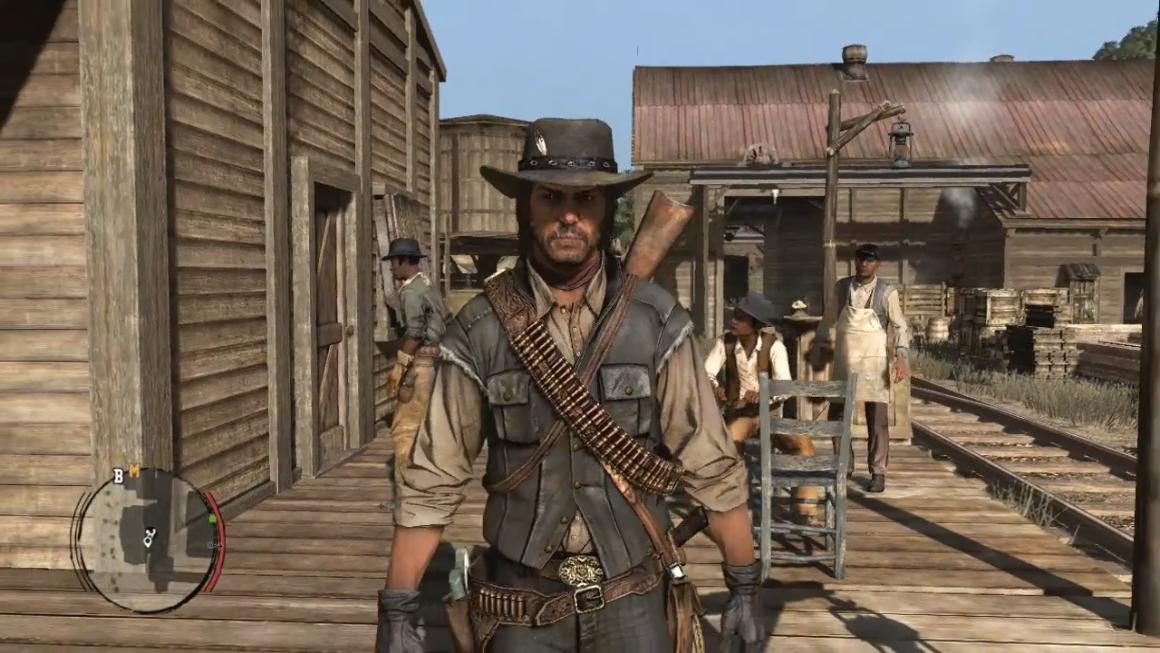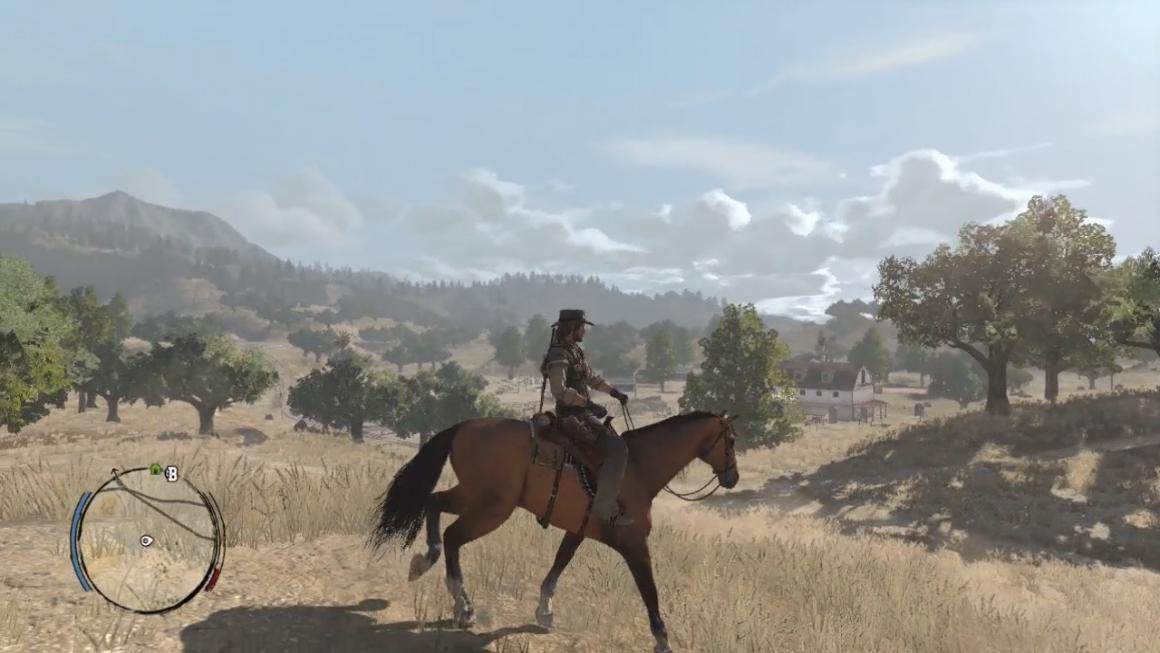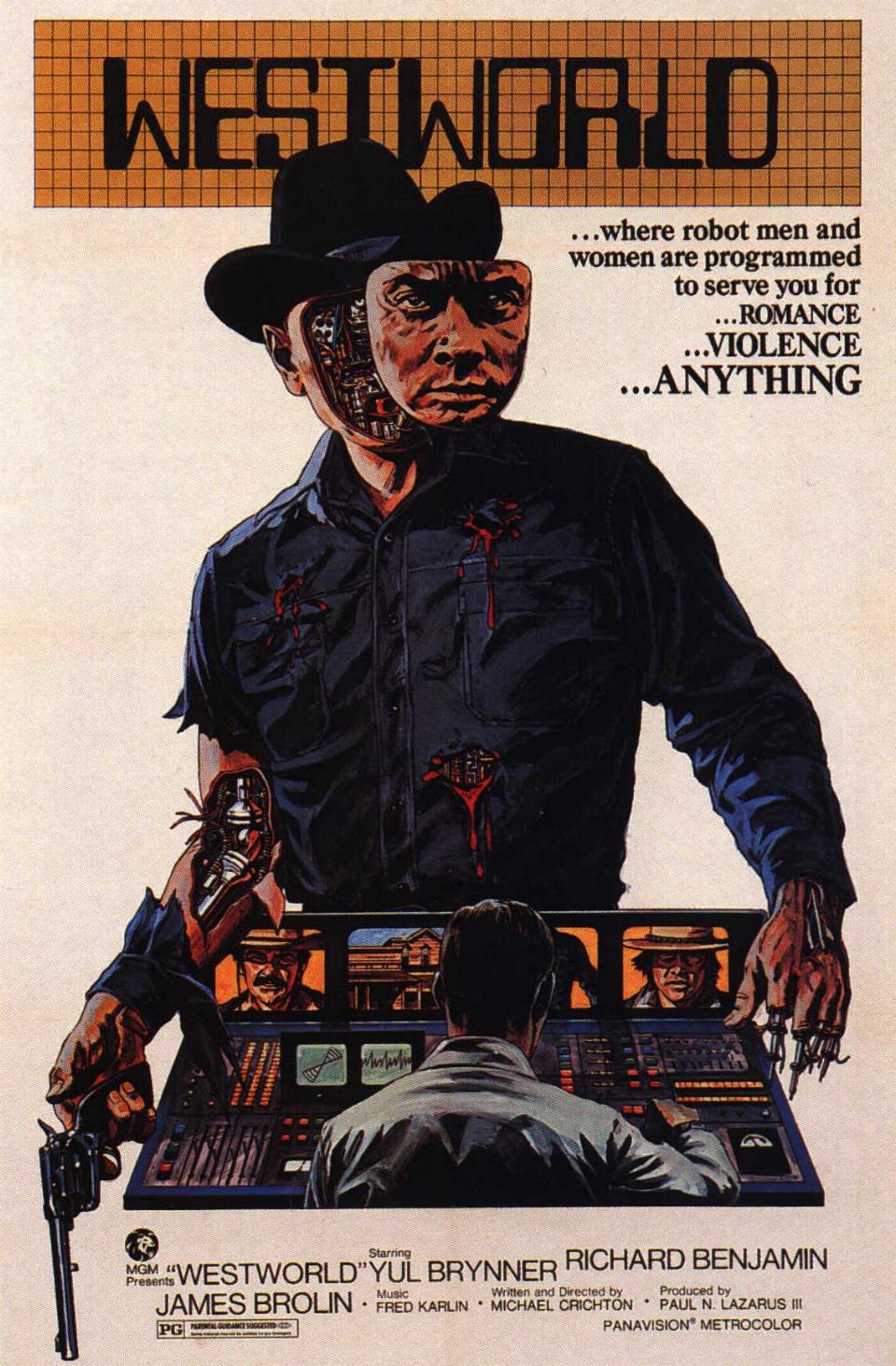This post originally appeared on Matt Weise's blog Outside Your Heaven.
I am currently having more fun playing Red Dead Redemption than any other open world game in recent memory, and certainly more fun than I've had with a Rockstar game in several years. The last Rockstar game that felt similar was Grand Thief Auto: San Andreas, largely because of its heavy emphasis on role-playing elements. Grand Theft Auto IV was marketed as if it were a role-playing experience, but it didn't have San Andreas's benefit of a clear genre reference to build its various game systems off of and give them coherence. The clarity with which Redemption identifies itself as a Western, and the surprising extent to which it allows that to inform its world design, puts it head-and-shoulders above every other Rockstar game. Though it suffers from some vestigial design conventions inherited from GTA (mostly having to do with GTA's open world strategy of being a theme park rather than a holistic world simulation) it offers the player more choices, more expressive ways of behaving, than many open world games.
What's striking about Redemption is how unlike GTA it is, in spite of following a lot of the same conventions. It's pretty ironic, considering the associations of Westerns with guns and violence, that Redemption is one of the least violence-centered open world games I've played... even less, I feel, than RPGs like Fallout 3 or platformers like inFAMOUS. The fact of the matter is in the world of Red Dead Redemption there is a whole hell of a lot to do that doesn't involve killing people. I spent the first several hours of my game simply hanging out on a ranch, learning to tame horses, herd cattle, hunt, trade, forage, play cards with the locals, and in general just enjoy the beautiful countryside. I've heard the first few hours of the game criticized as "slow", but I wonder if this is just because no one asks you to kill people until a good while in. The only violence I engaged in (not counting hunting) in my first few hours was night watchman duty for a small ranch, where I was delighted to discover that killing was only one tool in my toolbox of available actions. All it took to scare off some cattle rustlers was pointing my gun at them. More belligerent trouble-makers could easily be disarmed with a well-placed shot, and if they still didn't feel like running they could be wrestled to the ground and knocked unconscious. And this was before I was given the lasso, which is originally for breaking in wild horses but works just fine on people too. Folks can be intimidated, knocked out, humiliated, scared, tied up, carried, untied--all without being murdered. Any combination of these things usually gets the job done, and the job is usually trying to maintain some semblance of order in an already fairly civilized (by video game standards) world. Probably the biggest irony of Red Dead Redemption is that its vision of a frontier civilization feels more peaceful and less violent than most video game worlds. The countryside isn't overwhelmingly hostile like it is in virtually all other open world games. Animals largely mind their own business, and most of the people you meet are friendly. You will occasionally encounter a hungry pack of wolves or some bandits, but these are always the exception, not the rule. You'll hear gunshots often in the distance, but you can simply mind your own business and go along your merry way. Life's too short, after all. And the open sky too beautiful.
The world of Red Dead Redemption is more indifferent than hostile. It isn't trying to kill you by default, and this may be why your range of responses to it involve a lot more than killing. When violence erupts, you know there's a range of ways to respond, depending on what sort of person you want to be and how you want others to regard you. The social simulation aspect of Redemption fits nicely in with the rest of the world. Murdering someone in the street is considered a crime, even if it was part of the duel, as is hogtying or assaulting random citizens. I once shot dead a man threatening a prostitute with a knife, and I was promptly run out of town by the authorities. Murder in defense of the weak or even in self-defense is frowned upon... unless you happen to wear a badge, in which case you basically have a license to kill anyone considered an "outlaw". Bounties always pay better if they are alive, but most gangs refuse to come quietly, so killing tends to become a natural consequence of law enforcement in practice. Of course, you can try to shoot everyone in the leg, hogtie everyone, etc.--and you may even get a few of them--but when you're pinned down in a canyon by seven snipers who have no qualms about killing you where you stand, pacifism becomes the quick road to suicide.
As a simulation Red Dead Redemption isn't as nuanced or as consistent as it could be, which hinders role-playing at times. I blame this primarily on the game's adherence to the "Rockstar formula" for how it attempts to integrate story and world design. Rockstar games have always been more like theme parks than proper world simulations. Story missions and challenges are like rides in a theme park, and the open world mostly serves as a fun space to explore while traveling from one "ride" to another. The rules that govern the open world are built on the story's theme, but they cannot be very complex or have very serious consequences because that would inhibit the players ability to experience all the "rides". There has always therefore been a disconnect between story and world in Rockstar games, and Red Dead Redemption is no exception. As an experience I feel the game would be a lot stronger if your behavior in the game world actually effected the story. For example, it would be nice if the sheriff of Armadillo wouldn't talk to you if you were an outlaw. Likewise it would be nice if all your actions in general had more lasting consequences. The fact that the game responds to you killing everyone in a town by having the town become a ghost town is great, but the fact that everyone respawns six days later is silly... just like the fact that a killing spree gets you in jail, but only for a week or so. Rockstar still doesn't want to prevent players from basically doing whatever they feel like at any given moment... like any paying customer at Disneyland.
The dissonance created by Red Dead Redemption's theme park structure, along with its occasional bugginess and thematic verisimilitude, makes it feel at times like a computerized version of Westworld, that old sci-fi movie from the 70s about a Western theme park populated by robotic cowboys. When the spell of Redemption breaks down, when the simulation suddenly feels shallow or the narrative inconsistent with my personal player behavior, it feels suddenly like I'm a customer in a Western-themed amusement park, not a carefully role-played persona in a richly simulated world. However when the spell holds, when the stars align and none of the various elements contradict each other, it's the wild west simulation I've waited my whole life to play.
1 Comments










I love rpg and the wild west! Great stuff!